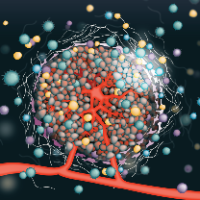Exploring the epigenetics of the TME
Immuno-Oncology Insights 2022; 3(9), 417–422
DOI: 10.18609/ioi.2022.045
Roisin McGuigan, Editor, Immuno-Oncology Insights, speaks to Jesús M Paramio, Head of the Molecular and Translational Oncology Division CIEMAT & Head of the Cell and Molecular Oncology Group, Institute of Biomedical Investigation University Hospital “12 de octubre” Madrid, Spain
What role do epigenetic modifications play in creating an immunosuppressive tumor microenvironment (TME), and how can further understanding of these epigenetic modifications help to better predict or enhance response to immuno-oncology (I–O) agents? In this interview, Jesús M Paramio, Head of the Molecular and Translational Oncology Division, CIEMAT, discusses his work in bladder cancer, the importance of interdisciplinary research, and the complex epigenetic factors at play within the TME.

